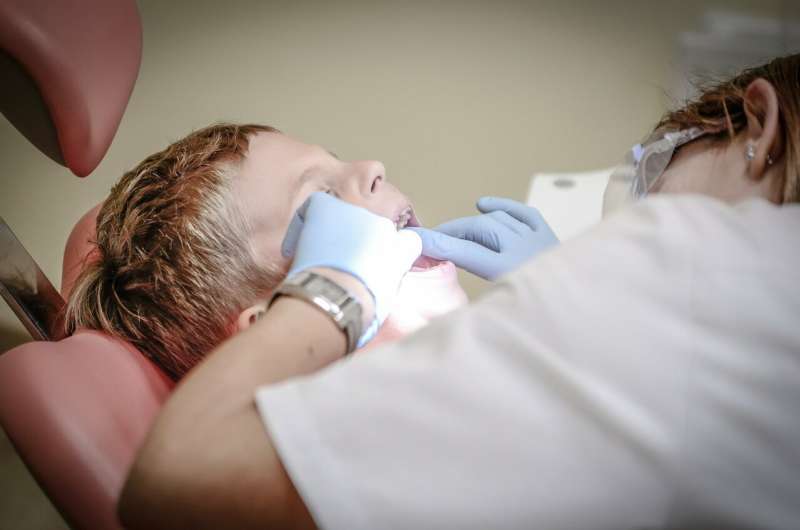
A brand-new study in the journal Microbiology Range highlights the possibility of making use of a natural substance from maple to deal with the germs in charge of tooth decay: Streptococcus mutans.
The substance, epicatechin gallate, is a powerful and safe choice to typical plaque-fighting agents. Its all-natural wealth, affordability and lack of toxicity make it specifically assuring for incorporation in dental care items such as mouth washes, offering a safer choice for children, that usually inadvertently ingest mouthwash.
The brand-new study became a descendant of research study into natural substances that hinder biofilm development in Listeria monocytogenes, a foodborne virus.
As is typically the situation in science, the scientists made an unanticipated observation that Listeria readily develops biofilms on plant materials, consisting of most timber, however seems to stay clear of specific types, especially maple
This piqued the scientists’ interest. They isolated polyphenolic substances from maple that inhibit Listeria add-on and biofilm formation. They additionally identified their target: sortase A, an enzyme that supports adhesins to the bacterial cell wall.
When sortase A is prevented, these adhesins are not secured in the bacterial cell wall surface, hindering the capability of Listeria to affix to surface areas and develop biofilms. That discovery led the scientists to examine whether similar mechanisms exist in relevant germs.
Sortase A in Streptococcus species, which is Listeria’s relative in the Bacillota phylum, ended up being rather comparable. One species particularly, Streptococcus mutans, stood apart since it creates tooth decays , commonly referred to as cavities.
“Since S. mutans starts cavities by developing biofilms (plaque) on teeth and producing acid that destroys tooth enamel , we asked: could maple polyphenols likewise prevent S. mutans biofilms? That question drove this study,” claimed equivalent study writer Mark Gomelsky, Ph.D., Martha Gilliam Teacher of Microbiology and Supervisor of the Microbiology Program at the University of Wyoming.
The scientists initially used computer modeling to see whether maple polyphenols could bind to the sortase A enzyme from S. mutans, and uncovered that they did.
Next off, they purified the sortase A in the laboratory and confirmed that these compounds prevent its activity in a test tube. Lastly, they analyzed whether maple polyphenols obstruct S. mutans from forming biofilms on plastic teeth and on hydroxyapatite disks– an alternate for real tooth enamel– and found they worked there as well.
“In a way, this research felt almost as well very easy. Everything fell into place just as we anticipated. That’s a rare experience in scientific research, and most likely the very first time it’s happened in my 35 -year study job,” Gomelsky stated.
“We found that a number of polyphenols existing in maple timber or maple sap can hinder the sortase enzyme in S. mutans, which subsequently stops this cavity-causing germs from attaching to tooth surfaces.”
Remarkably, the most powerful prevention was (-)- epicatechin gallate (ECG), a compound likewise present in eco-friendly and black tea , though in a lot greater amounts in tea than in maple sap. Drinking green tea has long been connected with lower rates of tooth cavities, and its main polyphenol, (-)- epigallocatechin gallate (EGCG), has been utilized in oral products.
The scientists discovered that EGCG does prevent S. mutans biofilms, however it’s not almost as effective as ECG. This raises the fascinating possibility that the moderate effects seen with EGCG-based dental products might result from using the suboptimal substance, as opposed to the extra powerful ECG.
“Our findings recommend that ECG or various other edible polyphenols with anti-sortase activity could be contributed to oral products to assist stop tooth cavities through an antibiofilm device,” Gomelsky claimed.
“This is various from conventional approaches, which rely on killing bacteria with alcohol, anti-bacterials or necessary oils, or on fluoride to remineralize enamel. The antibiofilm strategy utilizing edible polyphenols is especially appealing for kids. As an example, young children can not utilize conventional mouth washes because they may ingest them and risk poisoning.
“A safer choice, such as a mouthwash consisting of a reliable dose of an edible polyphenol, can give security without dangerous side effects.”
Gomelsky said they are proactively establishing plant polyphenol -based dental products with a startup started by University of Wyoming students and the first writer of this research study, Ahmed Elbakush, Ph.D.
More info: Microbiology Spectrum (2025 doi.org/ 10 1128/ range. 00693 -25 [
***************]
Citation : Natural maple polyphenol discovered to prevent dental cavity bacteria in brand-new study (2025, August 7 fetched 27 August 2025 from https://medicalxpress.com/news/ 2025 – 08 -natural-maple-polyphenol-inhibit-tooth. html.
This file goes through copyright. Aside from any reasonable dealing for the purpose of exclusive research or research, no.
component may be recreated without the composed approval. The content is provided for information functions only.